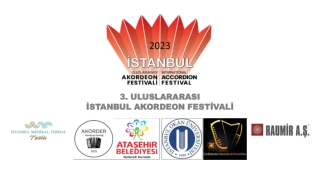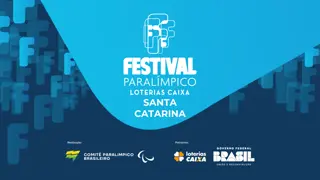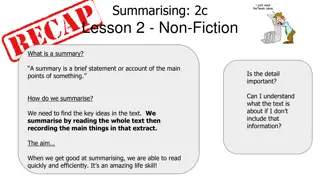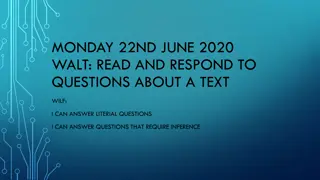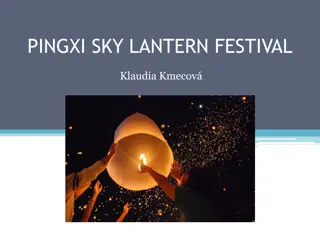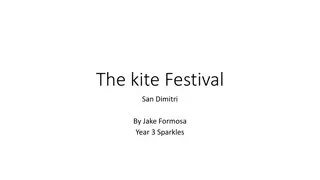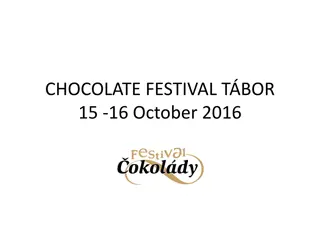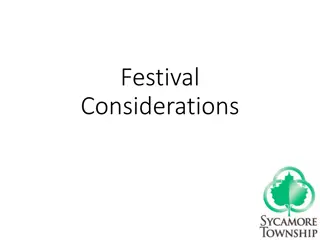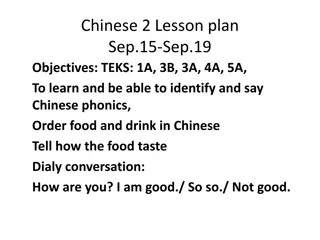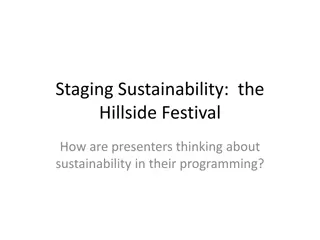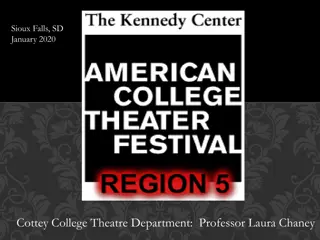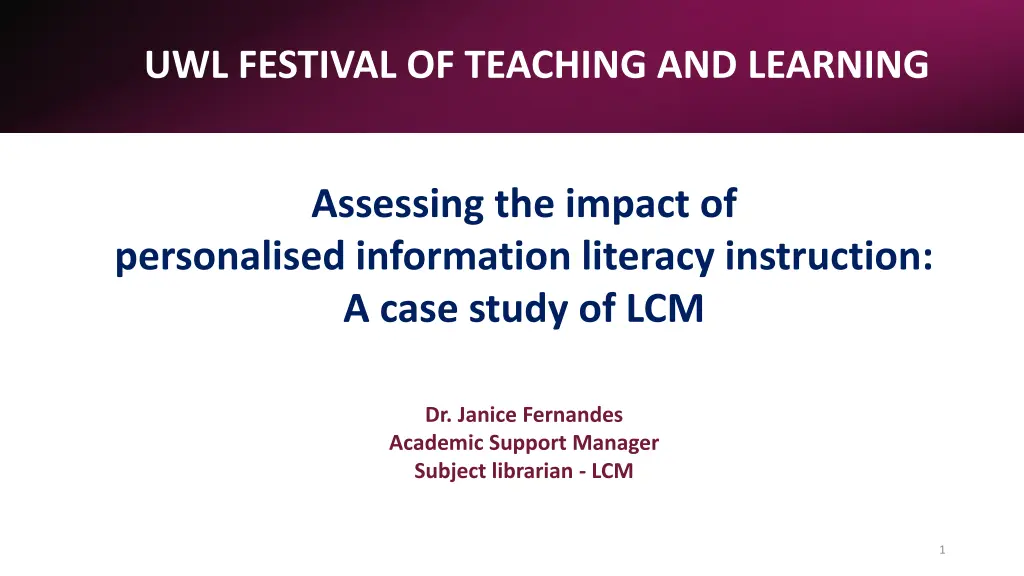
Assessing Impact of Personalised Information Literacy Instruction
Explore how personalised information literacy instruction impacts students, focusing on the case study of LCM with Academic Support Manager Dr. Janice Fernandes. The study delves into the need for personalised sessions, types of assistance required, evidence of impact, and recommendations for librarian-academic cooperation.
Download Presentation

Please find below an Image/Link to download the presentation.
The content on the website is provided AS IS for your information and personal use only. It may not be sold, licensed, or shared on other websites without obtaining consent from the author. If you encounter any issues during the download, it is possible that the publisher has removed the file from their server.
You are allowed to download the files provided on this website for personal or commercial use, subject to the condition that they are used lawfully. All files are the property of their respective owners.
The content on the website is provided AS IS for your information and personal use only. It may not be sold, licensed, or shared on other websites without obtaining consent from the author.
E N D
Presentation Transcript
UWL FESTIVAL OF TEACHING AND LEARNING Assessing the impact of personalised information literacy instruction: A case study of LCM Dr. Janice Fernandes Academic Support Manager Subject librarian - LCM 1
INTRODUCTION Information Literacy the discovery of information, the understanding of how information is produced and valued, the use of information in creating new knowledge and participating ethically in communities of learning (ACRL, 2015) Assessmentof information literacy instruction strengthens the diverse and proactive role of subject librarians in lifelong learning (Dosch and Willems, 2022) 2
OBJECTIVES OF THE STUDY 1.Need of personalised information literacy sessions in LCM 2.Type of assistance that LCM students need from their subject librarian 3.Evidence the impact of personalised sessions among LCM students 4.Suggest methods of co-operation between librarians and academics 3
LIBRARIAN AND STUDENT INTERACTION Induction Classroom Personalised university requirement curriculum requirement student requirement There is evidence of strong, positive connections between student use of the library and impact on student learning and success (ACRL, 2016). 4
Research Methodology PRIMARY RESEARCH SECONDARY RESEARCH Quantitative Research Books (sent questionnaire to 60 students , Lev 3 to Level 8 ; received 40 replies) Academic Journals Research papers and Reports Interaction with colleagues Qualitative Research (open ended question and quotes from academics) 5
Data Analysis Q1 At the beginning of the session, knowledge of information literacy was 25 23 20 15 10 5 5 1 7 4 0 Good Less Moderate Very Good Very Less 57% stated that their knowledge was moderate and 30% said it was less or very less. 6
Data Analysis Q2 Information literacy support was requested in the following areas Information literacy support was requested in the following areas All of the above 13% Searching & finding info 25% Citations and Referencing, 23% Structuring your dissertation, 10% Literature Review 30% 7
Data Analysis Q3 At the end of the session, your knowledge of information literacy was 25 21 20 16 15 10 5 3 0 Good Moderate Very Good 92% stated that their knowledge of IL was now good or very good. 8
Data Analysis Pre and Post Impact of Information Literacy % 0F RESPONDENTS 52.5% 40.0% 57.5% 7.5% 0.0% 0.0% 17.5% 10.0% 2.5% 12.5% 0.0% Very Less 0.0% 12.5% Less 0.0% 17.5% Moderate 7.5% 57.5% Good 52.5% 10.0% Very Good 40.0% 2.5% Post Session Before Session SESSION SCORES 9
Data Analysis Q4 Do you think that this interaction with your subject librarian has raised the quality of your assignment/research submission? 40 38 35 30 25 20 15 10 5 1 1 0 Maybe Yes No 95% students answered YES 10
Data Analysis Q5 Will you be contacting your subject librarian again, based on this experience Yes 30 Maybe 5 I do not need to 5 0 5 10 15 20 25 30 35 75% said YES No one said NO 11
Data from CIVITAS Count of student enquiries 87 Number of times an enquiry was made Count 1 37 2 10 3 7 4 1 5 1 12
Data Analysis Q6 The personalised session helped me understand the steps required to structure my research in an effective way. I was feeling very lost in my dissertation, I had too many ideas, worries and I wasn t feeling confident I could do a quality academic dissertation. After my session, I felt a million times more confident. I got an 82 on my Dissertation. Consulting directly with my subject librarian was not really something I had thought about previously. . directed me to some great sources and gave me a different perspective. Learning how to use Perlego Perlego has improved the range of sources from which I am able to draw. After the session, a new window opened in front of me, comprehending the task of a researcher. new window 13
Data Analysis Q6 .. contd. A thoughtful outside perspective on my research, which is rare to receive from a trusted academic. trusted academic. The subject librarian s skills are needed within two or three weeks of the course. The individual session was crucial for learning new in- depth skills. As an international student, I think the library is very useful in the beginning of auxiliary courses . It must be a compulsory course and directly linked to the course content. Tailor s experience to the individual. individual. The session was very productive, informative and precise. was very helpful and helped me shape my dissertation. 14
FEEDBACK FROM ACADEMICS I was wondering if there was a way to find out how it helped students apply the information in their areas of practical study study for Arts related courses The feedback received from my students is very positive after their interaction with you. Students have commented on how much they have appreciated this academic support and guided research via the Library. practical I believe 1-2-1 sessions definitely empower students and make them feel more confident about their independent research. This is impressive planning ahead! I think we ought to consider formally timetabling a research skills session for each level in semester 1. (June, 2023) 16
SOME RECOMMENDATIONS 1. More interaction with subject librarians with Module Study Guide creation process 2. Timetabling sessions to coincide with assignment submission dates and dissertation timelines 3. Collaboration with academics to assess the impact of information literacy through quality of research output 4. Additional discussions on Academic Integrity especially in response to advances in Artificial Intelligence 17
ROLE OF THE ACADEMIC LIBRARIAN INDUCTION PROGRAMME RESEARCH SUPPORT INFORMATION LITERACY DIGITAL SKILLS TRAINING LIBRARIAN ROLE LIFE-LONG LEARNING EMPLOYABILITY SKILLS HOLISTIC ROLE Academic Integrity - Creating honest citizens 18
SUMMING UP An understanding of the subject librarian s role in creating information literate graduates in the Higher Education framework will encourage more collaboration. Quantitative as well as qualitative research related to library instruction at UWL will pave the way for embedding information literacy into the curriculum at all levels and schools in a more meaningful way. 19
CONCLUSION I will end with a lovely quote from the Head of Subject at LCM It is important to integrate information literacy into a performing arts curriculum, even though some students may resist it in favour of the practical aspect of the course. Nevertheless, combining theory with practice is crucial for comprehending the practice and discovering innovative techniques. Collaborating with the LCM subject librarian has helped us establish a solid connection between theory and practice . Dr. Gavin Baker 20
REFERENCES Bravender, P., McClure, H. and Schaub, G. (eds) (2015) Teaching information literacy threshold concepts: lesson plans for librarians. Available at : https://discovery.ebsco.com/linkprocessor/plink?id=2f152ba5-1c9b-355b-9adf-80ea7b4c077d (Accessed: 12 June 2023). Lloyd, A. (2021) The qualitative landscape of information literacy research. Available at: https://www.perlego.com/book/3259709/the-qualitative-landscape-of-information-literacy-research-perspectives-methods- and-techniques-pdf (Accessed: 18 May 2023). Mackey, T. and Jacobson, T. (2010) Collaborative information literacy assessments. Strategies for evaluating teaching and learning. London: Neal-Schuman Publishers, Inc. McAdoo, M. (2012) Fundamentals of library instruction. Available at: https://www.perlego.com/book/1637222/fundamentals-of-library-instruction-pdf (Accessed: 17 May 2023). SCONUL (2023) The value of academic libraries. Available at: The value of academic libraries | SCONUL (Accessed: 18 June 2023). Zhu, S. et al. (2020) Conceptual assessment framework of students' information literacy: An evidence-centered design approach , International Symposium on Educational Technology (ISET), Bangkok, Thailand pp. 238-242. Available at: 10.1109/ISET49818.2020.00059 (Accessed: 17 June 2023). 21



